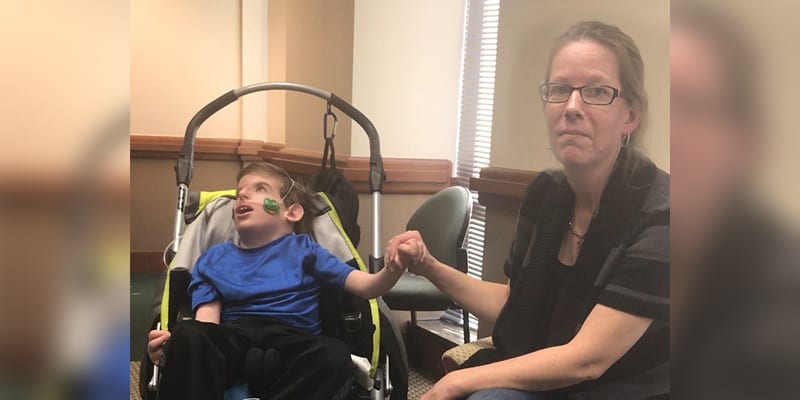On April 5, 2017, the House Committee on State Affairs heard House Bill 2063 by Representative Greg Bonnen (R-Friendswood). One of Texas Right to Life’s Pro-Life priority bills, House Bill 2063 would provide much needed patient protections against secret and forced Do-Not-Resuscitate orders (DNRs) on Texas patients.
Currently, Texas law is silent regarding whether consent must be gained from a patient or his medical decisionmaker before hospitals can place the order. Consequently, individual hospitals set their own rules for placing an in-hospital DNR in a patient’s medical file. In assisting families as patient advocates, Texas Right to Life has discovered on numerous occasions DNRs placed on patients without their knowledge, even in instances where a DNR contradicts a patient’s written directive or protests.
Carol Williams, an experienced ICU registered nurse, testified in favor of House Bill 2063. Mrs. Williams told the committee the story of her 40-year-old late husband, Byron Williams, who was hospitalized in Georgetown, Texas. Mr. Williams had a clear advance directive stating he desired full code, meaning that in the event of an emergency all efforts should be made to resuscitate him. Mrs. Williams repeatedly notified the medical personnel attending her husband about her husband’s wishes. One day, a nurse asked Mrs. Williams if she knew what the purple band on her husband’s wrist meant – that a DNR order had been issued by his attending physician. The nurse revealed she was conflicted on the proper course of care, as the physician’s DNR order and Mr. Williams’ advance directive were in direct conflict. Mr. Williams went into cardiac arrest, and the medical team followed the DNR, initially refusing to begin CPR. Mrs. Williams testified she had to threaten legal action before the medical team would comply with her husband’s wishes. Due to the time elapsed before attempted resuscitation, Mr. Williams passed away.
Another moving personal story at the hearing came from Alisha Hauber, who attended the hearing with her eight-year-old son, Lane. Lane has Trisomy 18, a condition that is considered “incompatible with life.” Doctors tell mothers receiving a prenatal diagnosis of Trisomy 18 that their children will likely not live to birth or will die within hours or days of being born. Because of these expectations, Lane was sent home with hospice care a week after he was born; and hospitals refused to repair his heart condition, since doctors did not think he would live. When Lane was just three days old and Alisha was visiting him in the NICU, she noticed a DNR order attached to his crib and asked the nurse why the order was there. She learned that because Lane was not expected to live, his doctor had decided to put a DNR on him without consulting the family because no Texas law required otherwise. When Alisha asked for the DNR to be removed, she was informed that the doctor had the right under state law to place the DNR without her consent. Thankfully, Lane fought through that hospital stay and is still alive eight years later.
Twenty state representatives have co-authored the legislation, signaling their support for the measure. Eight other states have codified such common-sense patient protections long overdue in Texas.
Two members of Texas Right to Life’s legislative team – Emily Cook, General Counsel, and Emily Horne, Senior Legislative Associate – testified in favor of HB 2063, outlining Texas Right to Life’s history of helping patients remove unwanted and secret DNRs across the state.
The Texas Medical Association, Texas Hospital Association, and Texans for Life Coalition registered against the measure at the hearing. Chairman of the House Committee on State Affairs, Byron Cook (R-Corsicana), asked bill author Dr. Bonnen to hold a meeting with the lobby groups to reach consensus before Chairman Cook would allow the committee to vote on the measure. Texas Right to Life participated in the meeting last week, anticipating good faith efforts to arrive at bill language acceptable to all at the negotiating table. Unfortunately, some of the appointed stakeholders have sent word early this week that, despite the encouraging roundtable discussions, they are unwilling to support the basic underlying premise of the bill.
As the 85th Session of the Texas Legislature is waning, Texas Right to Life is exploring alternative ways to ensure lawmakers provide patient protections before adjourning for two years. When anti-life medical ethics threaten the Right to Life, vulnerable Texas patients cannot wait for the 2019 Legislative Session.


